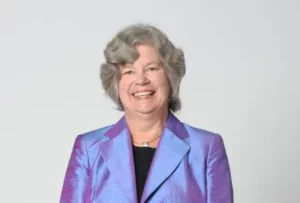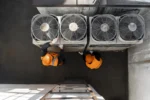Leading through hard times

It’s one thing to manage a business when times are good, but what do you do during difficult times – such as in an economic slowdown?
At our Institute, we study “Honeybee” organisations whose leaders are expert at not just surviving, but thriving in difficult times. Honeybee leaders share a few things in common. First, they don’t wait until a crisis hits, they plan ahead for difficult situations. During good times, they map out all kinds of possible scenarios, so that in a crisis – even an unexpected crisis – their managers are prepared.
Sustainable organisations also adopt a long-term view. They don’t panic, they realise that difficult times don’t last forever and that as soon as things improve, they will want to hit the ground running again. Therefore, Honeybee firms value all their stakeholders – especially employees, customers, suppliers and the local community. Interestingly, these companies often see an economic crisis as an opportunity to attract talent from firms that are downsizing.
Many of these resilient Honeybee businesses are family-owned and small, but some well-known large companies also adopt Honeybee practices, such as automaker BMW. Here are some learnings from Honeybees:
Look after others:
Honeybee leaders look after all their stakeholders and protect their workers and suppliers, even in hard times. For example, during the 2008–9 Global Financial Crisis, BMW made sure that its smaller suppliers remained afloat by offering them financial help, even though BMW itself had experienced a huge drop in revenues. With its suppliers still viable, BMW was then able to restart its business once the crisis had passed and it then made record sales. Similarly, because BMW had built loyalty over many years of Honeybee leadership, its workforce agreed to a company-wide pay cut during the crisis. The lost pay was returned once things improved, which happened quickly largely because the company’s skilled workforce was still intact.
Generate new ideas:
Another way Honeybee companies get through crises is by involving the entire workforce in innovation. People close to the customer are typically full of ideas for cutting costs or improving the business – we just need to ask them. For example, one Australian firm is contacting its old customers whose hot water systems are more than 10 years old, offering obligation-free check-ups. It’s an excellent way to generate sales and become top of mind when a customer does need service, and train apprentices.
Know where you’re going and keep heading there – even in difficult times:
Make sure that your employees share your vision and will pursue it. BMW’s vision is to be “the world’s leading provider of premium products and premium services for individual mobility”, and virtually every employee reports that this vision motivates them.
Inspire positivity:
When leaders are positive, it leads to new ideas, better performance and lifts the stress that besets the workers in difficult times. Positive employees also encourage positive feelings and motivations in customers, which can lead to repeat business.
Take a long-term perspective:
Realise that bad times don’t last forever. Prepare for your business to recover with new products, services or efficiencies. Use the down time to upskill employees or have front-line staff help with sales and marketing, for example. One Honeybee company lent its workers to charities and community service organisations after its manufacturing plant burnt down – building good will in the local area as a buffer against the next crisis, while broadening its own employees’ experience.
It’s not surprising that businesses led this way are proven to perform better financially, while taking care of people and the planet.

This article appears in Ecolibrium’s April 2023 edition
View the archive of previous editions
Latest edition
See everything from the latest edition of Ecolibrium, AIRAH’s official journal.





